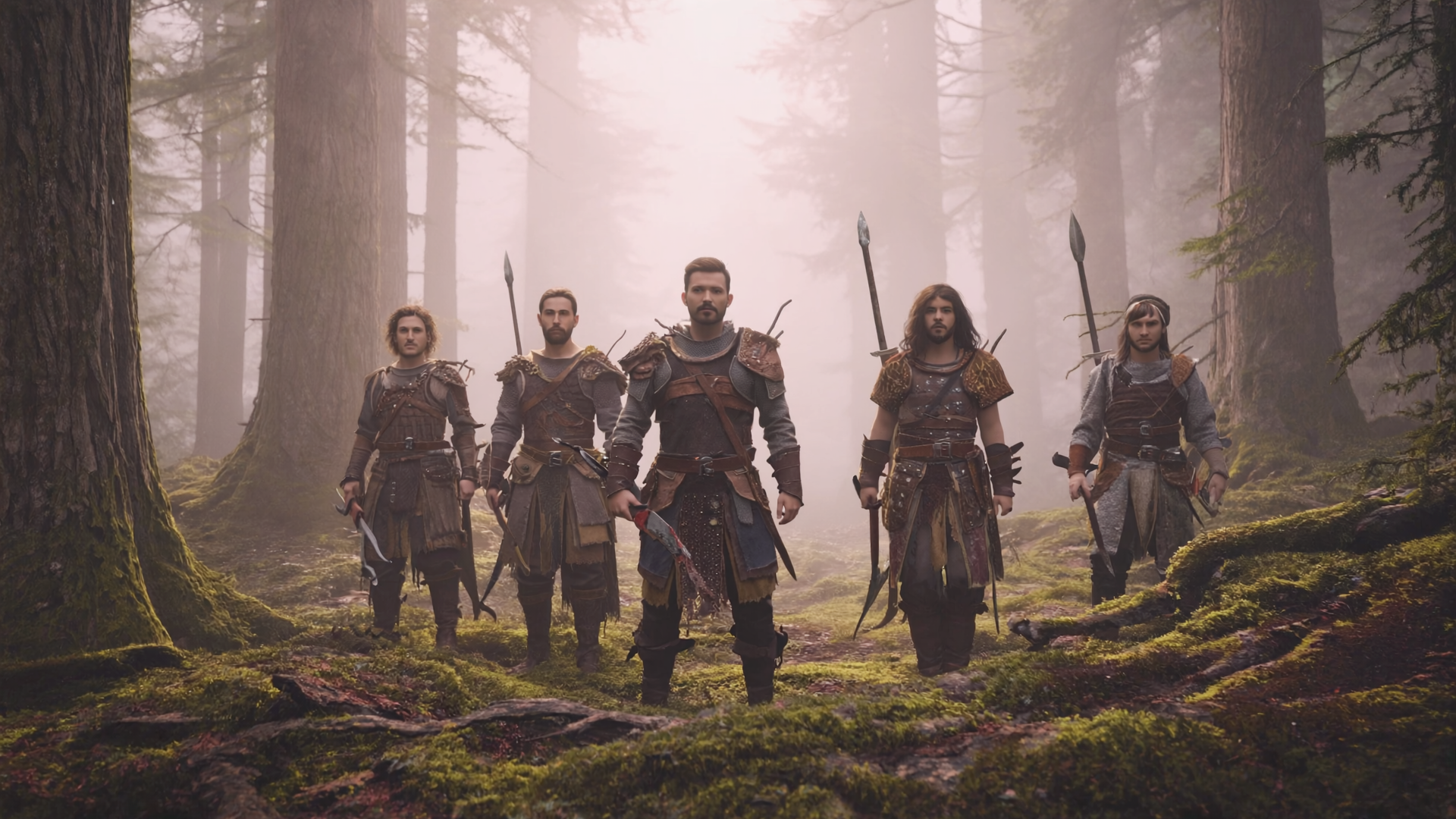A Season Under Iron Skies

I marched into Verrakros with river grit in my boots and vinegar in my canteen, one more dusk-born shadow among a hundred recruits promised to spend a season learning what Verrakis calls discipline. The city appeared first as a geometry of bridges, black-stone ribs spanning the silver channels of the Vale, the citadel riding the river’s bend like a clenched fist. Everyone tells you about the poetry of the south, the vineyards and olives, the way the hills glow wine-dark at sundown—but it’s the basalt I remember, how it swallowed sound and made the world listen.
They gave us each a slate and a stylus before a blade. “You will learn to write your oath before you carry steel,” said the captain, a woman whose hair and armor shared the same dull shine of honest work. “Strength without honor is rust.” We finished the phrase, as drilled: “Honor without strength is dust.” The words are carved above the Citadel Gate; our captain traced the letters in the air as if each were a scar.
Verrakis holds itself in a square stance—one foot in the forges, one in the guild halls. We drilled beside smithies hot enough to redden breath. Across the street, a guild master recited verses to apprentices shaping a bronze frieze of wheat and spears. No one smiled at the contradiction because Verrakis doesn’t recognize contradictions—only balance. “Sword and stanza, both sharpen spirit,” my billet-mate said. He’d grown up in a southern village where vines are blessed to Moab, but the temple in his ward kept twin altars: flame for Baom, living vine for Moab. “If your oath reaches only the fire or only the leaf, it breaks in wind.” I wrote that on my slate, then copied it on my arm when I realized I needed the reminder closer to blood.
The Circle of Iron sits above the king like a ring of steady storms; six generals, one for each river province, carry the weight of martial law into civic life. That sounded frightening when I first heard it, but in the courts I watched blood feuds rerouted into ritual duels. First Blood Oath, they call it—no one dies; everyone learns. The temple bells count out the strikes so tempers cannot outrun honor. Verrakis believes law is a sheath for heat. You don’t throw away fire—you fit it.
We were assigned to the South Watch Roads, a long red ribbon slanting toward Iloseda’s misted woods. It’s beautiful if you’re passing through and hard if you’re meant to keep it whole. We escorted caravans out of Zeramisos that smelled of salt and sweat, and we met vintners from Symara with poems etched on their mile-markers so travelers would remember gentleness even while bargaining. Everyone says the Marches choose their heart each morning: trade or war. Verrakis learned to speak both without lying.
Kharun raiders probed our river—black sails like slit pupils—and we saw smoke at the horizon where their forges kiss the sea. Our captain let us watch her write the report: precise, almost tender with detail, as if care were a blade. “We face iron that calls itself crown,” she said. “Meet chain with linkage of our own.” I didn’t understand then that she meant relationships as much as mail.
On my last patrol, the road moved through a windfall of swallows. A boy ran from the vineyard rows, holding a broken hoop—his father’s measure for pruning. He had two reasons to cry—fear and shame—and only one set of tears. We helped set the vines again, soldiers in red and silver making little green adjustments with the patience of grandmothers. The boy hiccupped his thanks to Moab and Baom in the same breath, which made the priest laugh softly. “Unity,” she said, “is not the same as sameness.” I thought of the bridges—how they do nothing alone, and everything together.
When I turned in my slate, the captain added a line in neat script above my scratched practice: Gate of the Marches is a door that never closes; it only learns better hinges. I walked out under the motto again, the dust on my sandals proof that honor, unlike rust, doesn’t flake off.

